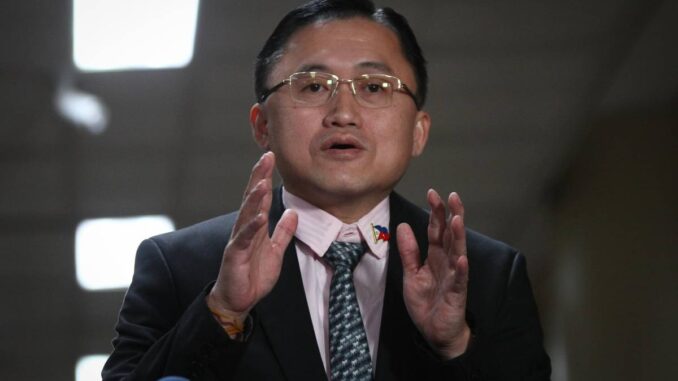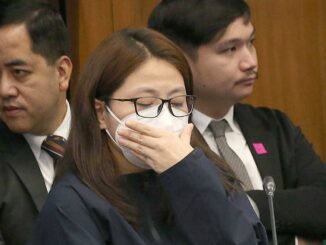
SEN. Bong Go commended the Department of Health (DOH) for its recent advisory emphasizing the continued provision of financial and medical assistance for indigent and financially incapacitated patients.
Go, chairman of the Senate Health Committee and an advocate for health reforms, said this support was a lifeline for millions of Filipinos struggling with medical expenses.
In a public advisory dated Dec. 17, the DOH reaffirmed its commitment to providing funds for medical assistance programs under Republic Act (RA) 11463, also known as the Malasakit Centers Act of 2019.
“The Department of Health (DOH) continues to provide funding and support to indigent and financially incapacitated patients. Under Republic Act 11463, those in need may seek medical assistance from Registered Social Workers in Malasakit Centers located in hospitals that have them. You can also inquire at hospitals without Malasakit Centers to see if they are covered by the DOH Medical Assistance for Indigent and Financially Incapacitated Patients (Maifip) for more information,” the advisory states.
Go, the principal author and sponsor of the law, cited its significance in institutionalizing a system that directly helps underprivileged patients.
“Malasakit Centers provide significant relief to our countrymen,” Go said. “It’s simply a place where agencies help ease their burden.”
During a hearing on Dec. 18 conducted by the Senate Committee on Health, DOH Undersecretary Emmie Liza Perez-Chiong said all Malasakit Centers across the country were given funding for Maifip. She cited the program’s efficiency, noting that hospitals can request additional funding from the DOH when necessary.
Addressing misconceptions, she said the administration of the Maifip program was entirely within the DOH’s jurisdiction, countering the notion that it operates on a political basis.
Go emphasized the importance of accessibility for all patients, asking, “So everyone has access to this? Can we get an assurance from the DOH that no patients will be denied assistance in your hospitals?”
Perez-Chiong said, “Yes, Mr. Chair, we have Maifip assistance available at all times. We have a hotline for patients who are suddenly denied assistance or informed of a cut-off. You can always call or email us about any issues. This service is available across 87 DOH hospitals, four specialty hospitals and all Malasakit Centers.”
Despite these assurances, Go said reports from provincial hospitals indicated a lack of funding for indigent patients.
“There are hospitals in various provinces that claim they have no funds and will no longer receive funding, right? RA 11463 or the Malasakit Centers Act mandates that no patients should be rejected and that they have access to these four agencies,” Go said.
Perez-Chiong said, “Yes, I can speak only for the Department of Health. I can’t comment on the Philippine Charity Sweepstakes Office (PCSO) or PhilHealth. Still, for the Department of Social Welfare and Development (DSWD), I can say that the assistance from the Medical Assistance for Indigent Patients continues. There is just one issue with that agency regarding the Joint Administrative Order we are supposed to implement. But rest assured; the Maifip assistance is ongoing even without that agency.”
Seeking further assurance, Go asked for confirmation from Health Secretary Teodoro Herbosa, who categorically stated, “Yes, Mr. Chair. We are not denying assistance to anyone who seeks help from the Malasakit Program Office.”
Herbosa elaborated on the collaboration with partner agencies like PhilHealth, DSWD and PCSO, adding that funds and services are in place to support indigent patients.
Go sought clarity on persistent rumors about depleted funds, questioning, “Is it true that the DOH has no funds for indigent patients?”
Herbosa assured the committee that the funds remain intact and outlined the various assistance provided by different agencies.
Go’s persistent inquiries culminated in Herbosa’s strong assurance: “Yes, Mr. Chair. Service will continue to be provided to all Malasakit offices.”
The Malasakit Centers serve as a one-stop shop, bringing together representatives from the DSWD, the DOH, the Philippine Health Insurance Corp. (PhilHealth), and the PCSO. These centers can financially support impoverished patients, reducing their hospital bills significantly.
DOH data show that over 15 million Filipinos have benefited from the Malasakit Centers. Currently, 166 Malasakit Centers operate nationwide, ensuring accessible and immediate assistance for patients in both public and private hospitals.





Be the first to comment